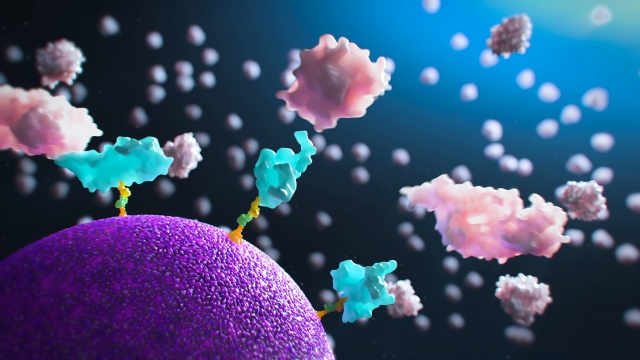13 September 2023 | Wednesday | News

Image Source | Public Domain
In a new paper published in Nature's Scientific Reports, researchers at SomaLogic Inc. studied the value of protein biomarkers in the early detection of cancer and the stratification of cancerous tumors. The research team identified 15 blood proteins shared among all cancer types as well as models to stratify tumor types. The goal of this research was to identify protein biomarkers that could be used to detect early-stage cancer during regular screenings, which could increase treatment options for patients, minimize the likelihood of chemotherapy resistance and reduce the risk of tumor metastases.
Early detection of cancer offers the best chance of successful treatment, but many cancers are only diagnosed at an advanced stage after patients exhibit symptoms or the disease is found during an unrelated procedure. Currently, screening tests for breast, colon, cervical, prostate and lung cancer are limited by their lack of sensitivity, invasiveness, high false positives and low patient compliance. Using the SomaScan®platform and machine learning, researchers at SomaLogic sought to overcome these challenges and limitations by exploring the possibility of identifying tumor-associated proteins in a mouse model that can be detected with a simple blood test early in the disease process and use them to establish the presence and identity of cancerous tumors.
“In addition to tumor-specific biomarker models, we were also able to identify sentinel proteins in plasma for four different tumor types,” said SomaLogic Chief Science Officer Nebojsa Janjic, who was an author on the paper. “Using our proteomics technology, we also developed a pan-cancer prediction model that can detect the presence of ovarian, colon and breast cancer tumors as small as 0.15 inches (<0.75mm3) by measuring circulating proteins in a small blood sample.”
Since lung cancer is the leading cause of mortality from cancer, the team focused on two human non-small cell lung cancer cell lines. They then expanded their research to include breast, colon, and ovarian cancer cell lines. Protein patterns allowed the researchers to identify biomarkers unique for each tumor type, as well as shared biomarkers that can detect the presence and predict the volume of these tumors.
For more than twenty years, SomaLogic has grown from its roots in the research lab to become a global leader in proteomics with technology that delivers the quality and quantity of biological insights life science researchers need - from lab to last mile.
© 2026 Biopharma Boardroom. All Rights Reserved.